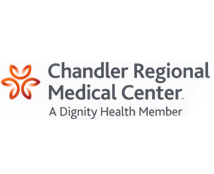Category Archives for Blog | Cardiologists at Arizona Heart Doctors Phoenix, AZ
The Use of Coumadin and Other Blood Thinners for Heart Disease
Coumadin is a blood thinner or anticoagulant medication that is designed to prevent clotting in the blood. Also known as Warfarin, this medication is often used to treat many types of heart disease. Patients are prescribed Coumadin by their Phoenix cardiologists when they have been diagnosed with blood clots or have a health condition known […]
How is an Echocardiogram used to Detect Irregular Heartbeat?
An echocardiogram utilizes sound waves that produce images of the heart. It is a common medical test used by Phoenix cardiologists to detect how the heart is functioning. Doctors use images from echocardiograms to diagnose heart abnormalities and how to treat them. There are several different types of echocardiograms used for a variety of diagnostic […]
For What Conditions is a Doppler Ultrasound Helpful to Diagnose?
A Doppler Ultrasound test utilizes sound waves to investigate how blood flows through blood vessels. The test helps your Phoenix cardiologist asses how blood flows through the arteries located in the neck, arms and legs. It is extremely helpful in identifying blockages or narrowing in the arteries that can lead to a stroke. It can […]
When Should A Stress Test Be Conducted?
A stress test is a physical activity based test that is designed to show how well the heart operates when under stress. The test is often referred to as an exercise test or exercise stress test. Your Phoenix cardiologist may recommend a stress test be conducted for several reasons: 1. To diagnose damaged or diseased […]
Pacemaker Follow-Up With a Phoenix Cardiologist
A pacemaker is implanted in a patient with heart abnormalities and problems with their cardiac electrical system. A pacemaker is a highly sophisticated piece of technology that can be optimized to meet a patient’s specific needs. The device requires routine follow-up evaluations and assessments to ensure that it is working optimally and effectively. Different Types […]
Testing for Venous Thrombosis (Blood clots)
Venous Thrombosis Testing Venous thrombosis occurs when one or more blood clots form in the deep veins of the body. This condition usually affects the legs, but can occur in other areas where there are deep veins. Leg pain is among the primary symptom, however, some patients report no symptoms at all. Venous thrombosis may […]
Treatment for Venous Thrombosis (Blood Clot)
A thrombus is a blood clot that forms in one or more of the deep veins somewhere in the body, commonly occurring in the legs and feet. Venous thrombosis is a condition that results in the development of one or more blood clots within the veins. The condition can be extremely serious because a clot […]
How to Reduce the Risk of a Stroke – from a Phoenix cardiologist
With the help of a cardiologist in Phoenix AZ, a stroke can be controlled and even prevented simply by being aware of the risk factors. From carefully treating diseases that can lead to a stroke and making the necessary lifestyle changes, there are a number of ways to reduce the risk of a stroke. Disease […]
Early Detection of Atherosclerosis – info from a Cardiologist Mesa AZ
Atherosclerosis involves the waxy and fatty accumulation of fats and cholesterol on the artery walls. The fatty deposits are most often referred to as plaques. The build up of this substance causes the arteries to harden, become narrow and less flexible. When the arteries are more narrow and hard, blood flow can be restricted. In […]
Treatment Options for Carotid Artery Disease
Carotid artery disease is caused by plaque and waxy build up that corrodes the artery walls causing a narrowing of the passageway and restricted blood flow to the brain. In the most severe cases of this disease, flexibility of the arteries is decreased, the walls become hardened and the passageway narrowed. Stroke is likely for […]











